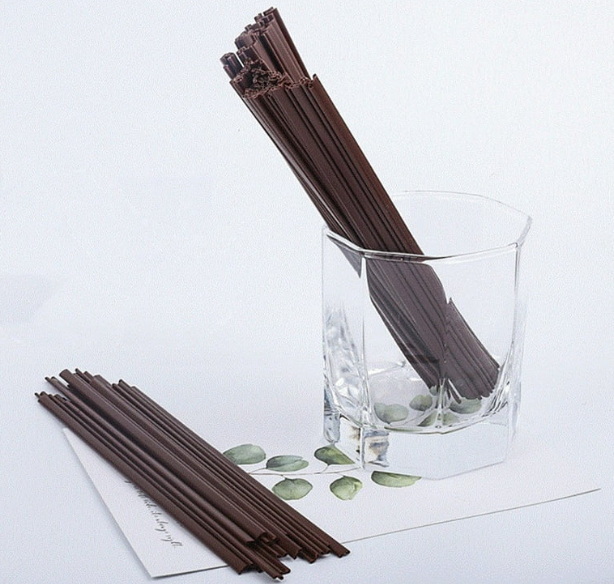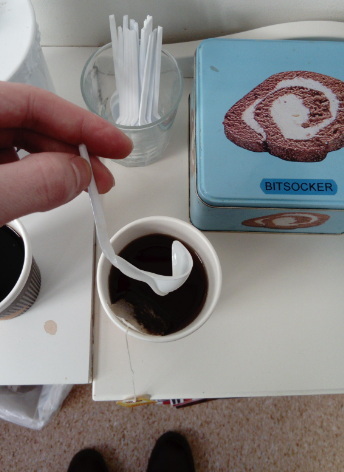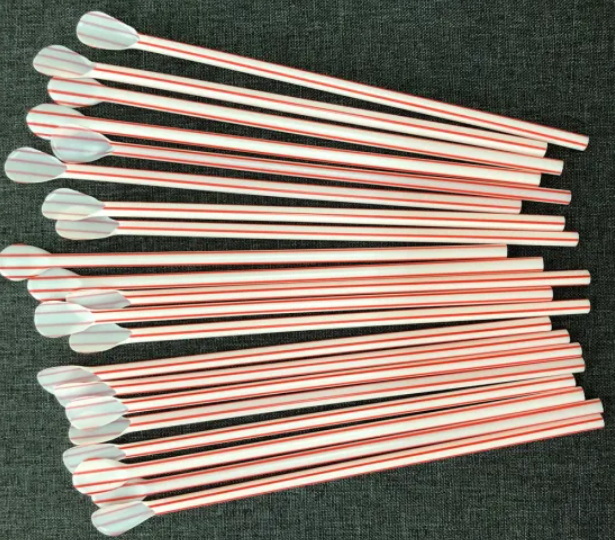
Content Menu
● Introduction to Disposable Spoon Straws
>> Safety Concerns
>> Sustainability of Disposable Straws
>>> Biodegradable Options
>> Practicality of Disposable Spoon Straws
● Visual Guide to Different Types of Straws
● Detailed Analysis of Materials
>> Plastic Straws
>> Paper Straws
>> Bamboo Straws
>> Silicone Straws
>> Stainless Steel Straws
● Innovations in Straw Technology
>> Compostable Straws
>> Edible Straws
● Impact on the Environment
>> Marine Pollution
>> Wildlife Protection
● Consumer Preferences and Trends
>> Sustainable Lifestyle
>> Eco-Friendly Brands
● Conclusion
● FAQs
>> 1. Are Silicone Straws Safe for Hot Drinks?
>> 2. What Are the Best Biodegradable Straws for Hot Drinks?
>> 3. Can Stainless Steel Straws Be Used for Both Hot and Cold Drinks?
>> 4. Are Paper Straws Suitable for Hot Drinks?
>> 5. How Do I Clean and Maintain Reusable Straws?
As the world shifts towards more sustainable and eco-friendly options, the use of disposable straws has become a topic of significant interest. However, when it comes to disposable spoon straws, there is a lack of clarity regarding their safety for both hot and cold drinks. In this article, we will delve into the world of disposable spoon straws, exploring their safety, sustainability, and practicality for various beverages.

Introduction to Disposable Spoon Straws
Disposable spoon straws are not a common term in the market, but they can be interpreted as straws that combine the functionality of a spoon with that of a straw. Typically, straws are made from materials like plastic, paper, or silicone, each with its own set of advantages and disadvantages. The concept of a disposable spoon straw might seem innovative, but it's essential to understand whether such products are safe for consumption.
Safety Concerns
When considering the safety of disposable spoon straws for hot and cold drinks, several factors come into play:
1. Material Composition: The material used to make these straws is crucial. For instance, plastic straws are known to degrade in hot temperatures, potentially leaching chemicals into drinks. On the other hand, materials like silicone or stainless steel are more heat-resistant and safer for hot beverages.
2. Chemical Stability: The chemical stability of the material ensures that it does not react with the drink, affecting its taste or safety. Silicone, for example, is chemically stable and does not impart flavors to drinks.
3. Durability: The durability of the straw is important, especially if it is designed to be used with both hot and cold drinks. Materials like stainless steel are highly durable and can withstand extreme temperatures.
Sustainability of Disposable Straws
While disposable spoon straws might not be a common product, the broader category of disposable straws has significant environmental implications. The shift towards sustainable alternatives like paper, bamboo, or silicone straws is gaining momentum due to their biodegradable nature and lower environmental impact compared to traditional plastic straws.
Biodegradable Options
- Paper Straws: Made from paper pulp, these straws are biodegradable but may become soggy in hot drinks. They are suitable for drinks below 60°C and are compostable.
- Bamboo Straws: Bamboo straws are durable, biodegradable, and can be used for both hot and cold drinks. They require proper cleaning to prevent mold.
- Silicone Straws: These are reusable, heat-resistant, and do not impart flavors to drinks. They are a sustainable alternative to disposable straws.
Practicality of Disposable Spoon Straws
The practicality of disposable spoon straws would depend on their design and functionality. If such straws are designed to be used once and then discarded, they might not offer significant advantages over traditional disposable straws unless they provide additional benefits like being compostable or made from sustainable materials.
Visual Guide to Different Types of Straws
Here is a visual guide to help understand the differences between various types of straws:
| Type of Straw | Material | Safety for Hot/Cold Drinks | Sustainability |
| Plastic Straws | Plastic | Not safe for hot drinks; may leach chemicals | Not biodegradable, contributes to pollution |
| Paper Straws | Paper Pulp | Suitable for cold drinks, may become soggy in hot drinks | Biodegradable, compostable |
| Bamboo Straws | Bamboo | Suitable for both hot and cold drinks | Biodegradable, sustainable |
| Silicone Straws | Silicone | Safe for both hot and cold drinks | Reusable, sustainable |
| Stainless Steel Straws | Stainless Steel | Safe for both hot and cold drinks | Reusable, sustainable |
Detailed Analysis of Materials
Plastic Straws
Plastic straws are the most commonly used disposable straws but are facing significant backlash due to their environmental impact. They are not biodegradable and contribute to plastic pollution. While they are cheap and convenient, their use is being phased out in many places due to environmental concerns.
Paper Straws
Paper straws are a biodegradable alternative to plastic straws. They are compostable and can be made from recycled materials. However, they have limitations, such as becoming soggy in hot drinks or when exposed to moisture for extended periods. Innovations in paper straw technology are focusing on improving their durability without compromising their eco-friendliness.
Bamboo Straws
Bamboo straws are another sustainable option. Bamboo is a highly renewable resource, and these straws are biodegradable. They can be used for both hot and cold drinks and are durable enough to be washed and reused multiple times. Proper cleaning is essential to prevent mold growth.
Silicone Straws
Silicone straws are reusable and made from food-grade silicone. They are flexible, easy to clean, and can withstand extreme temperatures. Silicone straws are a popular choice for those looking for a sustainable alternative to disposable straws. They are dishwasher safe and can be used for years with proper care.
Stainless Steel Straws
Stainless steel straws are durable, reusable, and safe for both hot and cold drinks. They are made from non-toxic materials and do not impart flavors to beverages. Stainless steel straws are a sustainable option but may feel cold to the lips when used with cold drinks.

Innovations in Straw Technology
As consumers become more environmentally conscious, innovations in straw technology are focusing on sustainability and safety. New materials and designs are being developed to create straws that are not only eco-friendly but also practical for daily use.
Compostable Straws
Compostable straws made from materials like sugarcane or cornstarch are becoming popular. These straws are biodegradable and can be composted at home, reducing waste significantly. However, they may not be as durable as other options and can become brittle over time.
Edible Straws
Edible straws made from ingredients like rice flour or cornstarch are another innovative option. These straws are biodegradable and can be consumed with the drink, eliminating waste entirely. However, they may not be suitable for all types of beverages and can be more expensive than traditional straws.
Impact on the Environment
The environmental impact of disposable straws is significant. Plastic straws contribute to marine pollution and harm wildlife. The shift towards sustainable alternatives is crucial to reduce plastic waste and protect ecosystems.
Marine Pollution
Plastic straws are among the top items found in beach cleanups and contribute to marine pollution. They can be ingested by marine animals, causing harm or death. Reducing plastic straw use can help mitigate this issue.
Wildlife Protection
Protecting wildlife from plastic pollution is a global concern. By choosing sustainable straw options, consumers can help reduce the amount of plastic waste that ends up in oceans and harms marine life.
Consumer Preferences and Trends
Consumer preferences are shifting towards sustainable products, and straws are no exception. The demand for eco-friendly straws is increasing as consumers become more aware of the environmental impact of their choices.
Sustainable Lifestyle
Adopting a sustainable lifestyle involves making conscious choices about daily products, including straws. Consumers are opting for reusable straws made from materials like silicone or stainless steel to reduce their environmental footprint.
Eco-Friendly Brands
Eco-friendly brands are responding to consumer demand by offering sustainable straw options. These brands focus on using biodegradable materials and promoting reusable products to reduce waste.
Conclusion
In conclusion, while disposable spoon straws are not a widely recognized product, the safety and sustainability of straws in general are crucial considerations. Materials like silicone and stainless steel offer safe and sustainable options for both hot and cold drinks. As consumers, choosing eco-friendly alternatives can significantly reduce environmental impact.

FAQs
1. Are Silicone Straws Safe for Hot Drinks?
Yes, silicone straws are safe for hot drinks. They are made from food-grade silicone that can withstand high temperatures without leaching chemicals into the drink.
2. What Are the Best Biodegradable Straws for Hot Drinks?
For hot drinks, biodegradable options like bamboo or certain compostable straws (e.g., those made from sugarcane) are suitable. However, they must be designed to withstand higher temperatures.
3. Can Stainless Steel Straws Be Used for Both Hot and Cold Drinks?
Yes, stainless steel straws are ideal for both hot and cold drinks. They are durable, reusable, and do not impart flavors to beverages.
4. Are Paper Straws Suitable for Hot Drinks?
Paper straws are generally not suitable for hot drinks as they can become soggy and break down. They are best used for drinks below 60°C.
5. How Do I Clean and Maintain Reusable Straws?
Reusable straws, such as those made from silicone or stainless steel, can be cleaned with soap and water or placed in a dishwasher. Regular cleaning helps maintain hygiene and extends their lifespan.

















